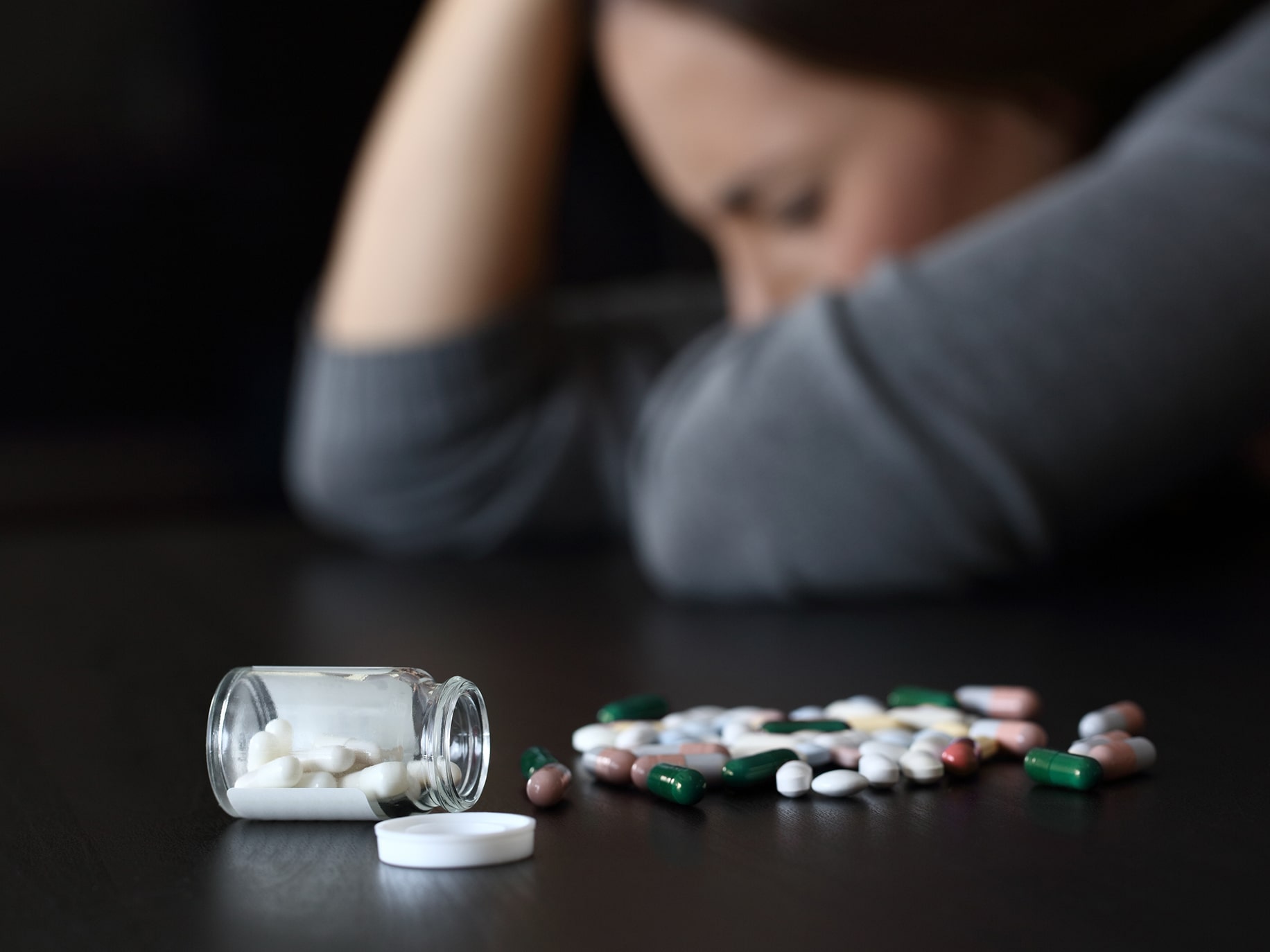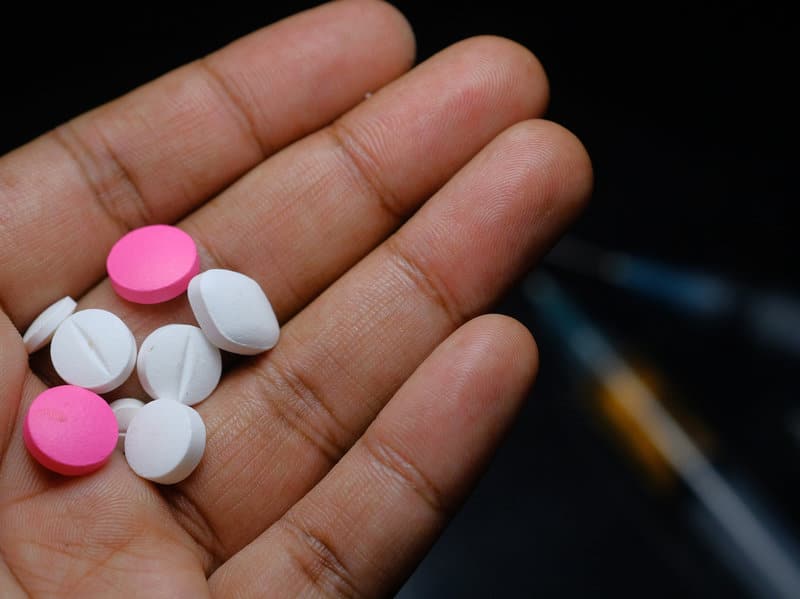An overdose is a physiological effect that occurs when the body has been exposed to dangerous amounts of a drug or toxin, which overwhelms the body’s regular functioning.
It is the biological response that occurs when the body takes over the recommended amount of a drug or a mixture of drugs.
An overdose may be accidental or intentional. Also, some people are very sensitive to certain drugs, a regular dose within the general medical use of a drug may be toxic for them.
Illicit drugs and drugs used for recreational purposes such as cocaine and methamphetamine (crystal meth) may be taken in excess amounts and leads to an overdose.
The person’s metabolism would be unable to remove the drug fast enough from their system, and this may have disastrous effects. Overdose is a term that is commonly applied to drugs.
It implies that there is a safe limit of drug intake. On the other hand, poisoning refers to exposure to certain plants, chemicals, and other toxic substances capable of causing harm.
More prolonged exposure and a high dosage of these substances can exacerbate the poisoning. An example of this is carbon monoxide poisoning.
Due to the individual differences in physiology, people respond differently to a drug overdose and treatment would depend on individual needs.
Drug overdose can occur to anyone regardless of their age, although it is prevalent in toddlers and among teenagers to those in their mid-30s. Overdose often happen as a result of attempted suicide.
People that intentionally overdose on drugs often have an underlying mental illness that may not have been diagnosed.
According to the World Health Organization, Overdose deaths contribute to between roughly a third and a half of all drug-related deaths attributable in most cases to opioids.
Lifetime prevalence of witnessed overdose among drug users is about 70%. In 2013, drug overdose was said to be the leading cause of death.
It caused more deaths among people between the ages of 25 and 64 years old, killing more people than motor vehicle accidents. In the United States, there were about 44,000 deaths caused by drug overdose, and half of these caused by prescription drugs.
The majority of these deaths involved opioid painkillers and benzodiazepines.
Types of Overdose
Addiction Center, a platform that connects people to rehabs and mental health professionals, classifies overdose based on their causal agents. The kinds of overdose include:
Depressant overdose
Depressants are substances that affect the central nervous system (CNS). These include alcohol, benzodiazepines, and opioids.
These drugs affect the body by lowering the blood pressure and body temperature and slowing the heart rate and breathing. The sedative effects of these drugs, in turn, reduce anxiety levels and increase a calm and euphoric effect.
Adverse effects, such as respiratory failure, overdose, coma, or death, can occur when these drugs are taken in high amounts.
Opioid Overdose
Opioids are one of the easiest and most common substances to overdose on, due to how they function once ingested.
Opioid receptors in the central nervous system, peripheral nervous system, and the gastrointestinal tract are activated, causing the body to slow down. Excess amount of these substances overwhelms the receptors and impairs the body’s ability to perform other functions.
This may lead to reduced breathing to the point of stopping it.
Alcohol Overdose
Alcohol overdose occurs when you drink more alcohol than your body can handle. The body can safely process about one unit of pure alcohol per hour.
This is approximately the amount of alcohol in a small shot of liquor, a half pint of beer, or a third of a glass of wine.
When a person consumes more alcohol than this in shorter periods, the alcohol builds up in the body due to the body not being able to process the alcohol fast enough, leading to a buildup of alcohol that spreads throughout the body.
This may lead to an alcohol overdose, also known as alcohol poisoning. Alcohol overdose is characterized by symptoms like vomiting, confusion, seizures, slow and irregular breathing, and paleness.
Causes of Overdose
The International Statistical Classification of Diseases and Related Health Problems (ICD – 10) groups the following drugs as significant causes of overdose:
Alcohol
- Ethyl alcohol
- Methanol
Sedative-hypnotics
- Benzodiazepine
- Barbiturate
- Ketamine
- Gamma Hydroxybutyrate (GHB)
- Ethclorvymol
- Glutethimide
- Methaqualone
Stimulants
- Cocaine
- Methamphetamine (Crystal meth)
- Amphetamine
Prescription drugs
- Paracetamol
- Aspirin
- Vitamins
Tobacco (nicotine)
Signs and Symptoms of Overdose
Some of the symptoms of overdose include:
- Confusion
- Insomnia
- Problems with vital signs such as pulse rate, blood pressure, temperature, and respiratory rate.
- Cold and sweaty, or hot and dry skin
- Chest pain
- Shortness of breath
- Abdominal pain
- Nausea
- Vomiting and diarrhea
- Delirium
- Reduced consciousness
- Hypothermia
- Dilated pupils
- Hallucinations
- Seizure
- Coma
- Death
Diagnosis
A physical examination would be conducted to find evidence of overdose or poisoning. The medical professional would order a lab test to check organ functioning and damage.
Friends and family members can assist the diagnosis by providing the doctor with the names of drugs, the amount of drug taken, and the timing of overdose. Drug screening may be done to measure the levels of drug levels in the blood.
Treatment of Overdose
Treatment will depend on the specific drug taken in the overdose. The stomach may need to be pumped mechanically to remove unabsorbed drugs from the stomach.
Activated charcoal may be given to the patient to help bind the drugs and keep them from the stomach and intestines. This helps to reduce the amount of drugs absorbed in the blood.
Sometimes, overdose causes people to be agitated and violent. They may need to be restrained and sometimes sedated until the drugs wear off.
For some cases over overdose, other medications may be administered as an antidote to reverse the effect of the drug or to prevent the drug from causing more harm.
What can I do during an overdose?
If you suspect that you or someone you know is suffering from an overdose, call your local emergency number. Do not leave the person alone; stay with them until emergency medical professionals arrive.
If you witness an overdose and the person has lost consciousness, they should be placed on their side in case they vomit. This would help to prevent any choking that may occur.
The person should also not eat or drink anything. Friends and family should report to the medical professionals if they know what substances were taken so appropriate treatment can be given.














